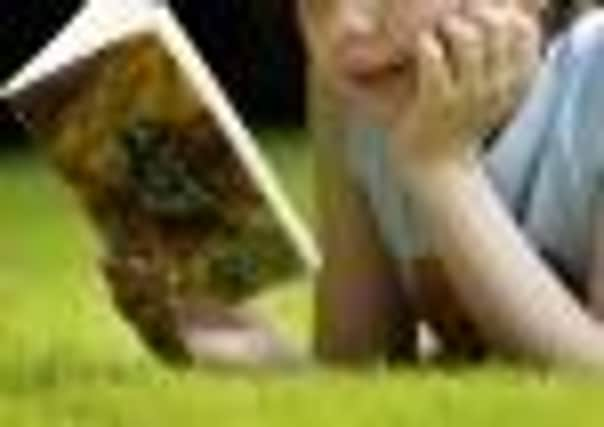Gervase Phinn: Every child in Britain should have their own books... and enter a world of opportunity


I have a quite extensive education wishlist for 2012 but my most earnest plea is that every child in every home in the county has his or her collection of books and is encouraged to read.
The NLT report’s conclusions come as no surprise: that girls read more than boys and that those children from the most disadvantaged homes are more likely than any not to own a book.
Advertisement
Hide AdAdvertisement
Hide AdWe all know that some children come from homes where there is fairness, acceptable behaviour and positive attitudes to others and where books are as common as knives and forks and some children, sadly, do not. The most disadvantaged child, above all, needs books which are the very protein of growth in learning and which nourish. Books are the architecture of a civilised society and the windows upon the world.
In Babies Need Books, Dr Barrie Wade concludes that “it is dangerous to leave a child’s exposure to books too late. Research has shown that by the age of four, 50 per cent of a person’s final intelligence had already developed and that young children acquire vocabulary at a breakneck speed. Books have a vital role to play in this process”.
There are very worthy schemes in place in this country such as Bookstart, which offers free books to children before they start school, the School Library Association projects and the NLT initiatives to encourage reading but more could be done. In this, I feel Government should take the lead.
Politicians of all parties espouse the importance of books and reading. Former Secretary of State, David Blunkett, said that “reading is the fundamental tool of all learning” and John Major, to his credit, placed such a priority on reading that he devoted part of his speech to the Conservative Party Conference in 1993 to stress how vital it is. “Unless we teach a child to read, we hobble that child for the rest of his life,” he said.
Advertisement
Hide AdAdvertisement
Hide AdI welcome the recent statements by Education Secretary Michael Gove and Schools Minister Nick Gibb emphasising the importance of reading and its active encouragement in schools.
So what more could be done? I believe that there should be a national initiative to fund the purchase of books for pre-school children.
If children are to become lifelong readers they should have easy access to books – even more vital now that libraries are closing across the county – and if books are in the home it is likely that parents will become more involved in their children’s reading.
“The most important thing parents can do for their children is read with them,” says Jostein Gaarder, author of Sophie’s World.
Advertisement
Hide AdAdvertisement
Hide Ad“So many children today are just sitting in front of the television and we are becoming very poor at sharing experiences between the generations.
If you have a child on your knee with a book you are sharing it, you have the close physical contact and the child can start to talk to you. We talk about inter-activity on computers, but really there is more interaction in reading a book.”
In 1996, Dolly Parton launched an exciting new initiative in her home state of Tennessee which could be replicated to great effect throughout the United Kingdom.
Her vision was to foster a love of reading among the county’s pre-school children and their families by providing them with a gift of a specially selected book each month. Through her Imagination Library she wanted children to own books, be excited about them and to feel the magic that reading can create.
Advertisement
Hide AdAdvertisement
Hide AdIt was my home town of Rotherham that has lead the way in introducing the Imagination Library to this country. The council leader, Roger Stone, following his visit to the United States where he spoke to Dolly Parton and invited her to England, became convinced that this scheme could raise literacy standards in Rotherham and he set about bringing the Imagination Library here.
Through donations from the Chamber of Commerce, the NHS and the local authority, there was sufficient funding for 90 per cent of the population in Rotherham under five to receive a book a month.
I have met some of the children and their parents who have benefited from having books in the home and there has clearly been a real impact. This is borne out by teachers in Rotherham who say that the Imagination Library has had a positive influence on standards of reading and on literacy in general.
Children, I was told, having had the experience of books in their early years, come to school familiar with books and keen to learn to read.
Advertisement
Hide AdAdvertisement
Hide AdFollowing Rotherham’s lead, Sheffield, Luton, Sheerness, Nottingham, Wigan and two communities in London joined, and the Scottish Book Trust announced it would be adopting the scheme for “looked-after” children across the whole of Scotland, funded by the Scottish Government. I earnestly hope that the UK follows Scotland’s lead.